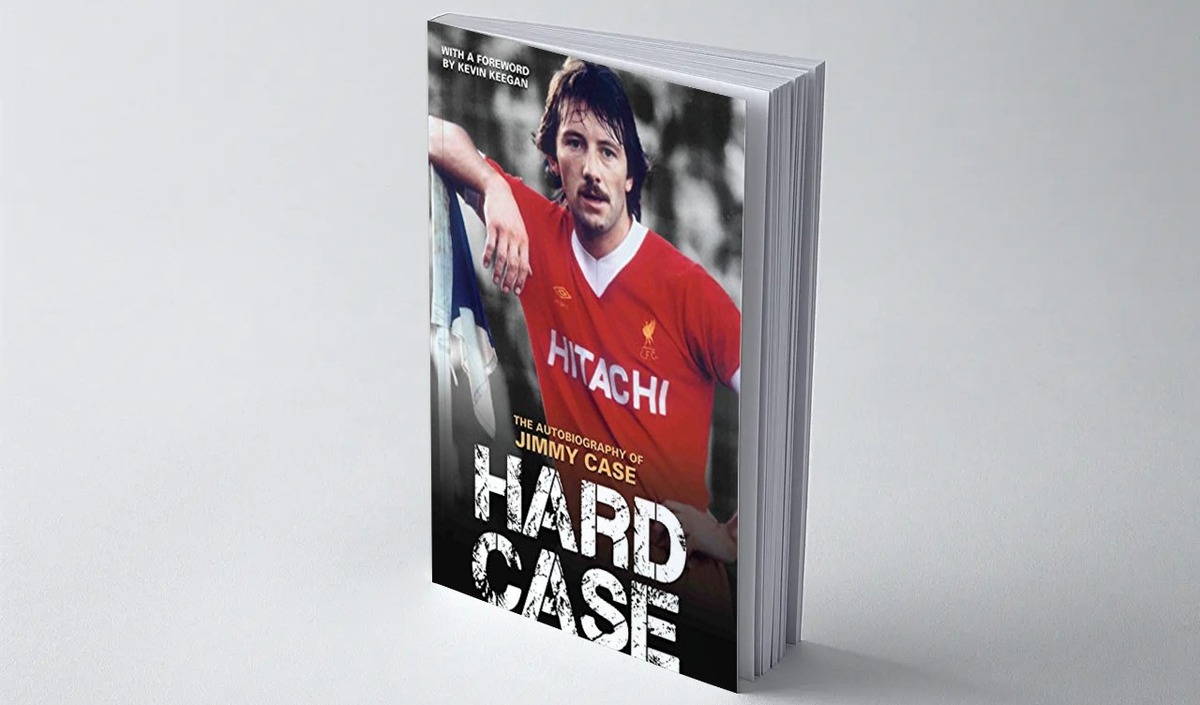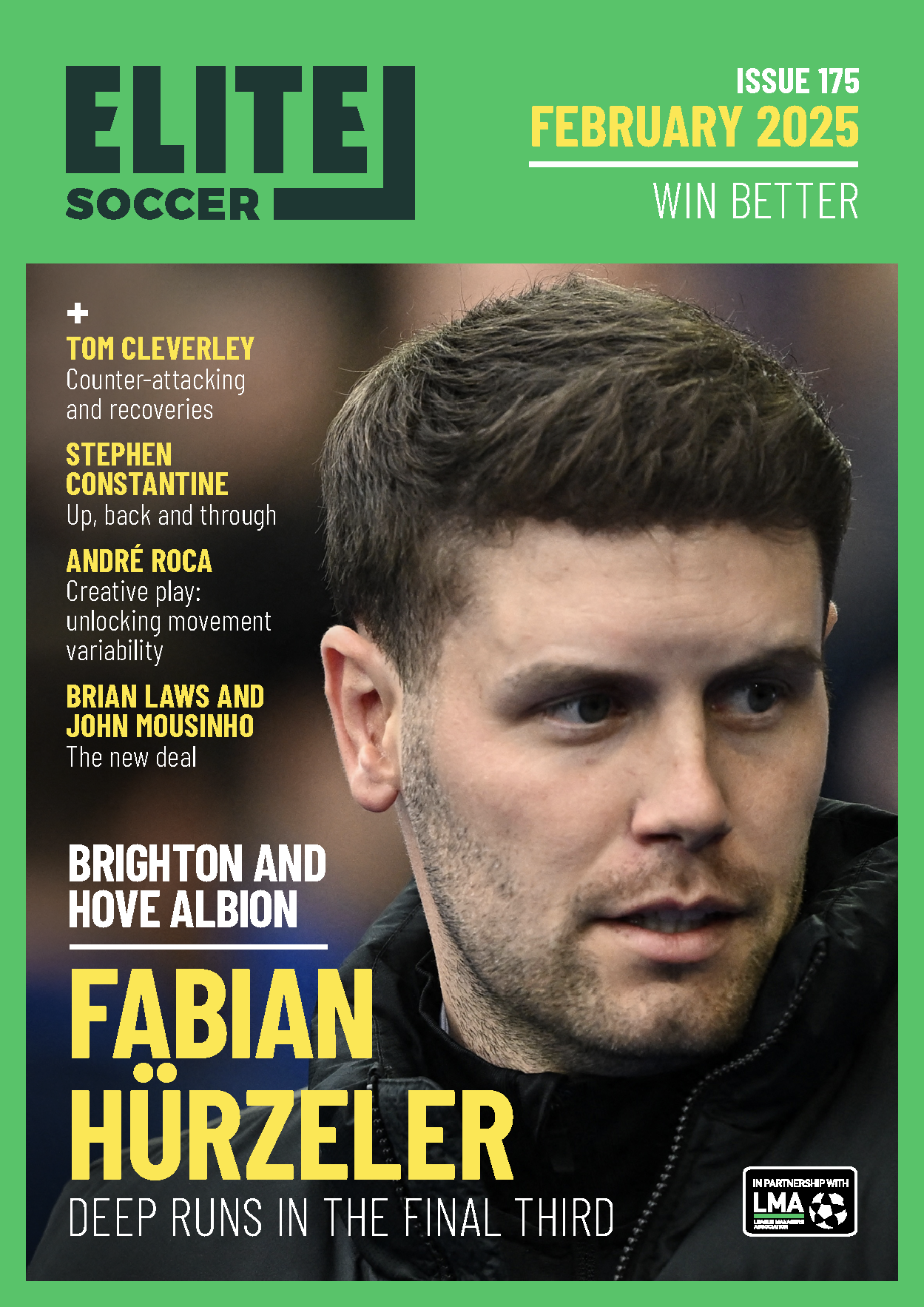You are viewing 1 of your 1 free articles
Hard case
We’re all too aware of how much the game has changed in the past two decades. Sky’s domination of the English Premier League sparked an international wave of ubiquitous domestic football coverage, fuelling the game’s latent potential and moving it on to stratospheric levels of competition, coverage and finance.
While most of us revel in the success of the modern game – and the extension of knowledge that has filtered down into the semi-professional, amateur and youth games – it’s often worth taking a look back to what some social commentators term ‘the good old days’. The memories are less rose-tinted and more encrusted with mud, but when the traditional hard men of the game were plying their trade in rough and sometimes brutal outfield battles, there was a different seam running through the sport.
No better is this exemplified than in Jimmy Case’s autobiography, fittingly titled ‘Hard Case’, an unrelenting, bulldozing tribute to a different era of football where sportsmanship was every bit as important, even if the methods were slightly different.
Case enjoyed a rich career, starting out at hometown club Liverpool in 1973. He clinched four top-flight titles and the same number of Charity Shield winner’s medals, triple European Cup success, Football League, UEFA and European Super Cups as well as an FA Cup finalist’s medal. The midfielder then switched to Brighton & Hove Albion, going on to make 200 appearances for Southampton before winding down his career with spells at Bournemouth, Halifax Town, Wrexham and Brighton again, finally hanging up his boots at the age of 42.
His autobiography guides the reader around an era of the game that will seem alien to any young player progressing through the ranks. The battles were hard, both on and off the pitch, and Case references a vast cross-section of playing and coaching philosophies in summing up a career that combined electric highs with occasional lows.
To absorb and act upon all of Case’s experiences and observations is probably not necessary, but this engaging ode to a fiery footballing mind is certainly useful in reminding us that not everything has to be taught ‘the modern way’. Is football in 2015 perhaps too obsessed with development and process? Case didn’t grow up that way – instead he carried himself with an unrelenting focus simply to put in every tackle and sprint for each ball as if it were his last.
‘Hard Case’ goes to show that football in the 1970s and 1980s was simple and uncomplicated, as were many of the players. Not distracted by sponsorship deals, work with communities and not driven by diets and fitness plans, they got on and did what came naturally, and as Case reveals, maybe that wasn’t such a bad thing.
Excerpt
FA Cup Final 1977, May 6, 1977, Manchester United v Liverpool.
"Already we had won the Division One title, but not only was the elusive League and Cup double on the cards, four days later we would face Borussia Mönchengladbach in the European Cup final. History was there to be made.
We knew it wasn’t going to be easy; there was never a chance of us underestimating the opposition, even though we were the champions.
I wasn’t nervous – quite calm, really, even though for me this was the big one, the top of my wanted list ever since those days in front of the telly with me mum. I wonder if today’s professionals think the same way.
As the referee’s buzzer went, all twenty two players plus subs clattered into the tunnel. There were some nods to pals, even one or two handshakes between familiar rivals, but that was not for me. I never shook hands before a match. That could wait until after the final whistle when, win or lose, I would shake everyone’s hand.
As we lined up, my focus was totally on the game. I just had no idea what a bittersweet afternoon it was going to turn out to be for the team, and certainly for me.”
Hard Case: The Autobiography Of Jimmy Case, Jimmy Case. Published by John Blake Publishing Ltd.
Editor's Picks
Deep runs in the final third
Using the goalkeeper in build-up play
Pressing principles
Intensive boxes drill with goals
Penetrating the final third
Creating and finishing
My philosophy
Pressing initiation
Compact team movement
Coaches' Testimonials

Alan Pardew

Arsène Wenger

Brendan Rodgers

Carlos Carvalhal

José Mourinho

Jürgen Klopp

Pep Guardiola

Roy Hodgson

Sir Alex Ferguson

Steven Gerrard
Coaches' Testimonials

Gerald Kearney, Downtown Las Vegas Soccer Club

Paul Butler, Florida, USA

Rick Shields, Springboro, USA

Tony Green, Pierrefonds Titans, Quebec, Canada
Join the world's leading coaches and managers and discover for yourself one of the best kept secrets in coaching. No other training tool on the planet is written or read by the calibre of names you’ll find in Elite Soccer.
In a recent survey 92% of subscribers said Elite Soccer makes them more confident, 89% said it makes them a more effective coach and 91% said it makes them more inspired.
Get Monthly Inspiration
All the latest techniques and approaches
Since 2010 Elite Soccer has given subscribers exclusive insight into the training ground practices of the world’s best coaches. Published in partnership with the League Managers Association we have unparalleled access to the leading lights in the English leagues, as well as a host of international managers.
Elite Soccer exclusively features sessions written by the coaches themselves. There are no observed sessions and no sessions “in the style of”, just first-hand advice delivered direct to you from the coach.





